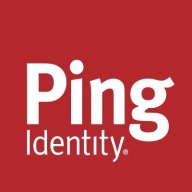

Omada Identity and Ping Identity Platform compete in the identity and access management category. Omada holds an edge in governance and Microsoft integration, while Ping stands out in security and integration ease.
Features: Omada Identity provides strict governance, flexible customization, and broad compliance reporting. Its automated provisioning simplifies identity lifecycle management. Ping Identity Platform offers secure identity management, supporting multi-factor authentication and adaptable deployment options, including efficient mobile integration.
Room for Improvement: Omada Identity requires UI improvements, better scalability, and simpler error handling with enhanced API accessibility. Ping Identity Platform needs a simplified UI, better customization for consumer identity management, and improved desktop application integration.
Ease of Deployment and Customer Service: Omada Identity offers flexible deployment with on-premises and cloud solutions but faces issues with technical support response times. Ping Identity Platform excels with hybrid cloud options and reliable customer service but encounters complexity in deployment processes.
Pricing and ROI: Omada Identity is competitively priced for on-premises setups, benefiting from automation efficiencies, though its cloud pricing is high. Ping Identity Platform offers flexible and cost-effective pricing, with positive ROI in security enhancements and scalability.
We do not contact their technical support directly because we have a service agreement already in place with them with some dedicated and some non-dedicated resources.
The biggest issue, which is the reason why we are transitioning from their product to SailPoint, is the overall user experience.
They are lower than some of their competitors.
Technically, the product does everything one would expect from an identity and access management platform.


Omada Identity is an identity governance and administration (IGA) solution designed to help organizations manage and secure digital identities and access across their IT environments. It focuses on enhancing security, compliance, and efficiency by automating identity management processes.
Omada Identity offers a robust set of features that streamline identity lifecycle management, access governance, and compliance reporting. It integrates with a wide range of IT systems, applications, and data sources, providing a centralized platform for managing user identities and access rights. The solution enables organizations to enforce security policies, ensure regulatory compliance, and reduce the risk of unauthorized access.
What are the critical features of Omada Identity?
What benefits or ROI items should users look for in the reviews when evaluating Omada Identity?
Omada Identity is widely adopted across various industries, including healthcare, finance, and manufacturing. In healthcare, it helps protect patient data and comply with regulations like HIPAA. In finance, it ensures compliance with SOX and other financial regulations. In manufacturing, it secures access to sensitive production data and intellectual property.
Pricing and licensing for Omada Identity are typically based on the number of users and the specific features required. Customer support is available through various channels, including online resources, support tickets, and professional services for implementation and customization.
In summary, Omada Identity is a comprehensive IGA solution that enhances security, compliance, and efficiency in managing digital identities and access.
We monitor all Identity and Access Management as a Service (IDaaS) (IAMaaS) reviews to prevent fraudulent reviews and keep review quality high. We do not post reviews by company employees or direct competitors. We validate each review for authenticity via cross-reference with LinkedIn, and personal follow-up with the reviewer when necessary.